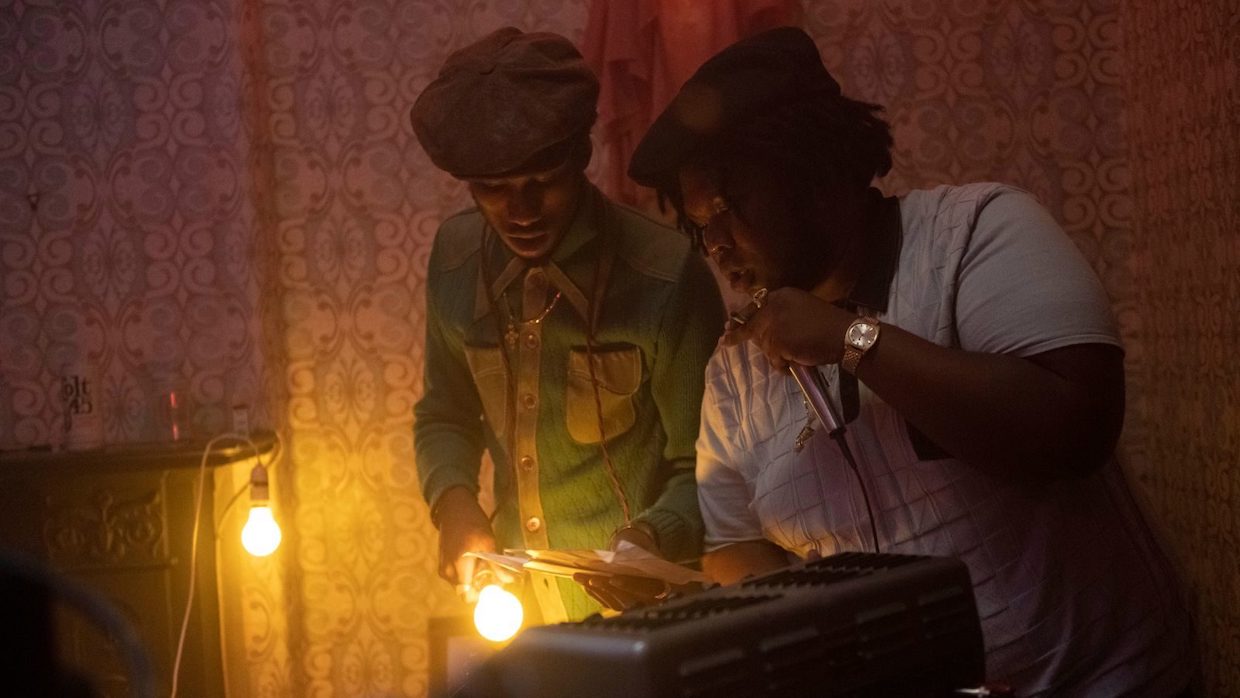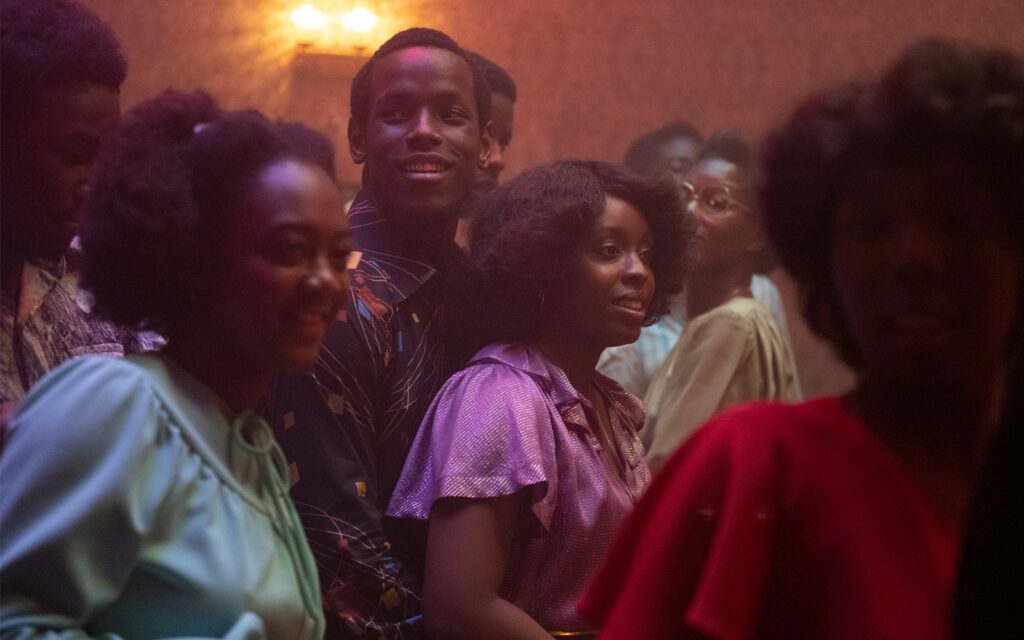Lovers Rock is the second chapter feature in Steve McQueen’s Small Axe: A Collection of Five Films, an anthology of stories exploring the Black British experience in the 1960s to the ‘80s. Lovers Rock is a stunning and triumphantly framed snapshot of first- and second-generation West Indian immigrant youth culture in London.

Wrapped in a sleek, shiny, 68-minute-long package, McQueen’s feature is set over a single night at a house party in 1980 West London. Voyeur-like, the camera drifts from person to person, room to room, dipping in and out of conversations, observing rather than narrating. With condensation dripping from the wallpaper, through cigarette smoke and pulsating soul music, McQueen invites viewers to weave in and out of this completely immersive and deeply sensual dance party, kept alive to the beats of ‘Kung Fu Fighting’ and ‘Silly Games’.
Beyond its transportive powers, Lovers Rock also exists in a conflicted psychological space. On the one hand, there is the comfort and excitement felt by these kids as they enter a space built exclusively for them, a self-contained bubble of colourful fabrics and writhing bodies. On the other, darker currents eventually tear their way through: Martha (a charming acting debut by Amarah-Jae St Aubyn) is targeted by an aggressive group of white men, a young woman is sexually assaulted, and the use of code-switching to navigate white spaces is brought to light. It is made clear that even within the protected space of community, the harsh realities of the outside world cannot be kept out for long.

And though it acknowledges this fact, the film refuses to give these intrusive moments the space or time to fester. Instead, Lovers Rock chooses to celebrate the radical act of rebellion that is its community’s joyful resilience. Lovers Rock is a beautiful, passionate, and vulnerably honest ode to the experience it depicts, one that will leave you gliding off Janet Kay’s final high note long after the credits roll by.
Lovers Rock release date is TBA.
